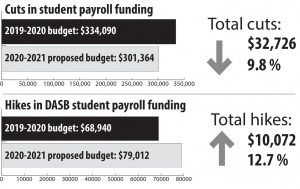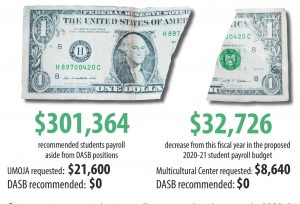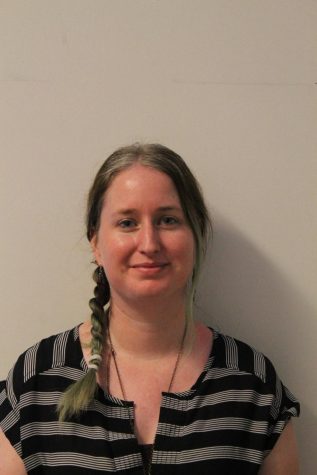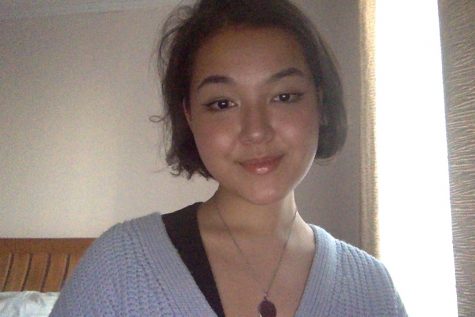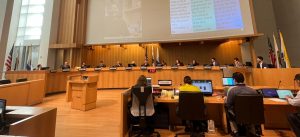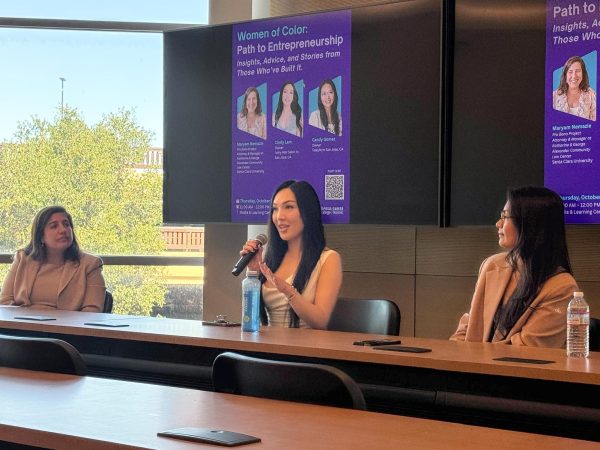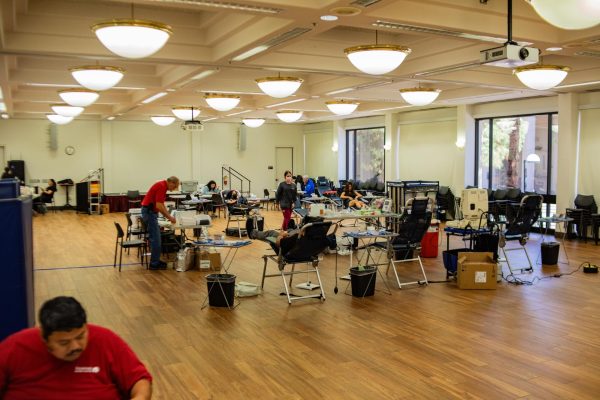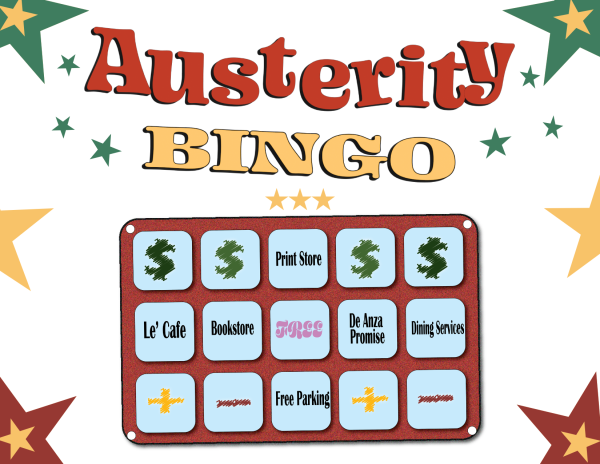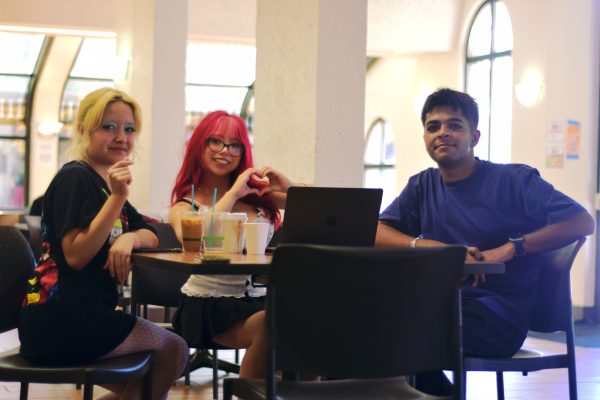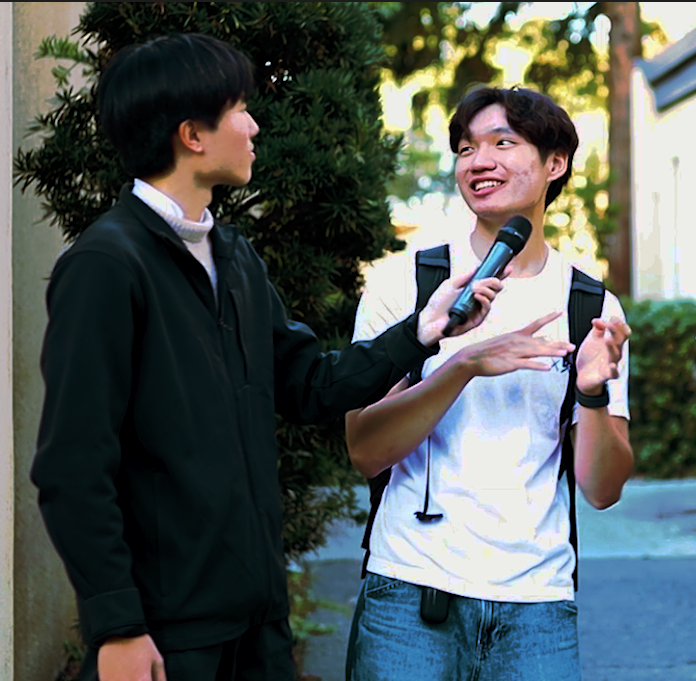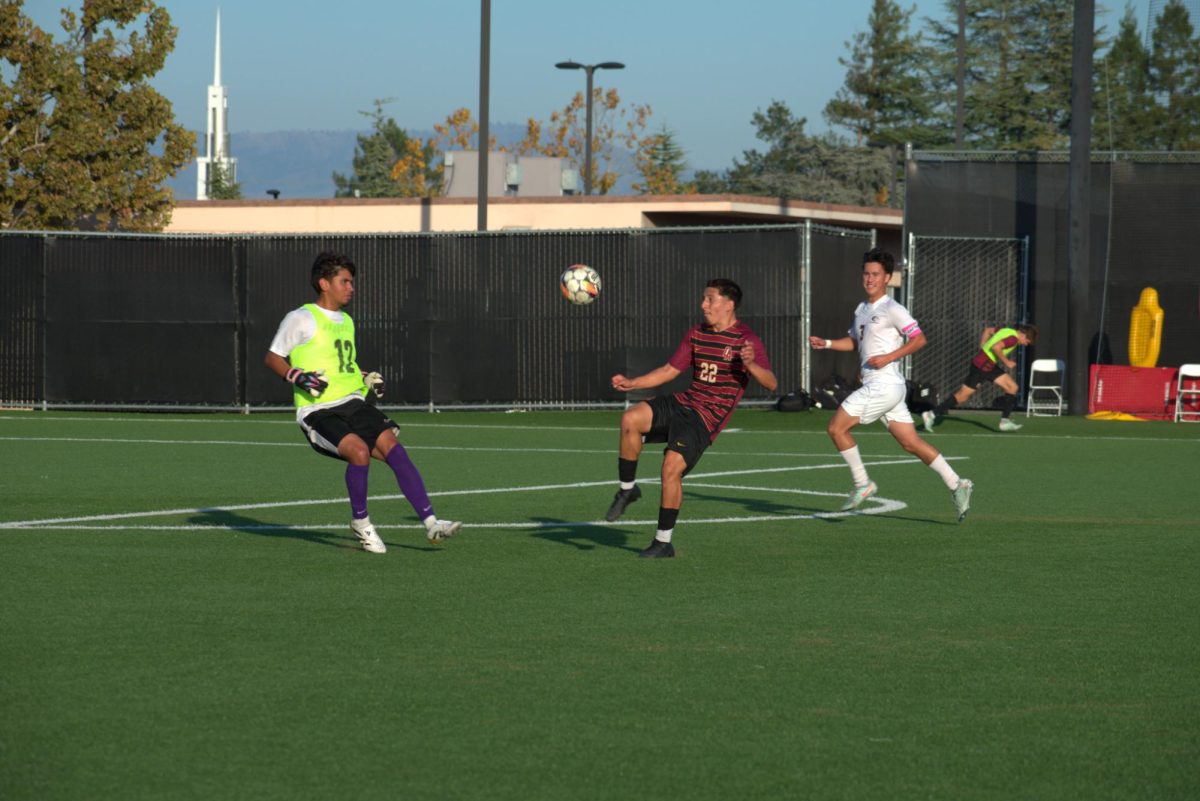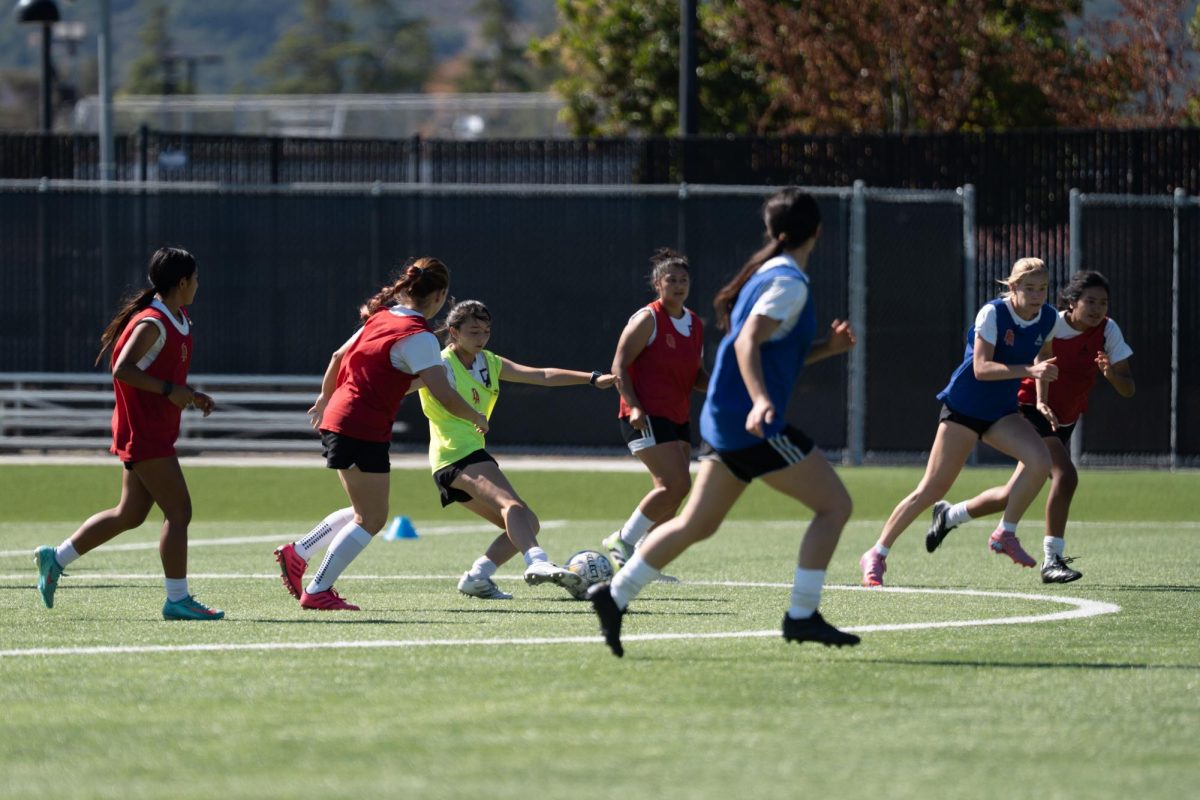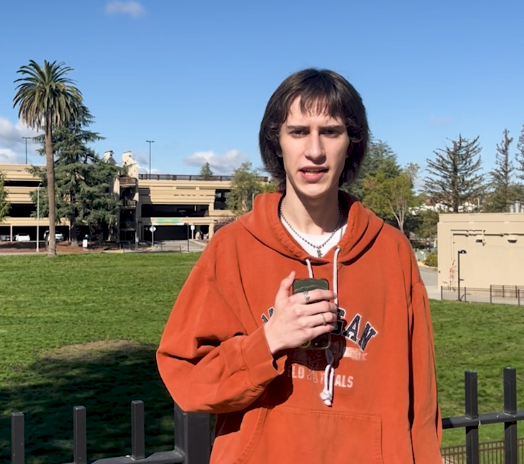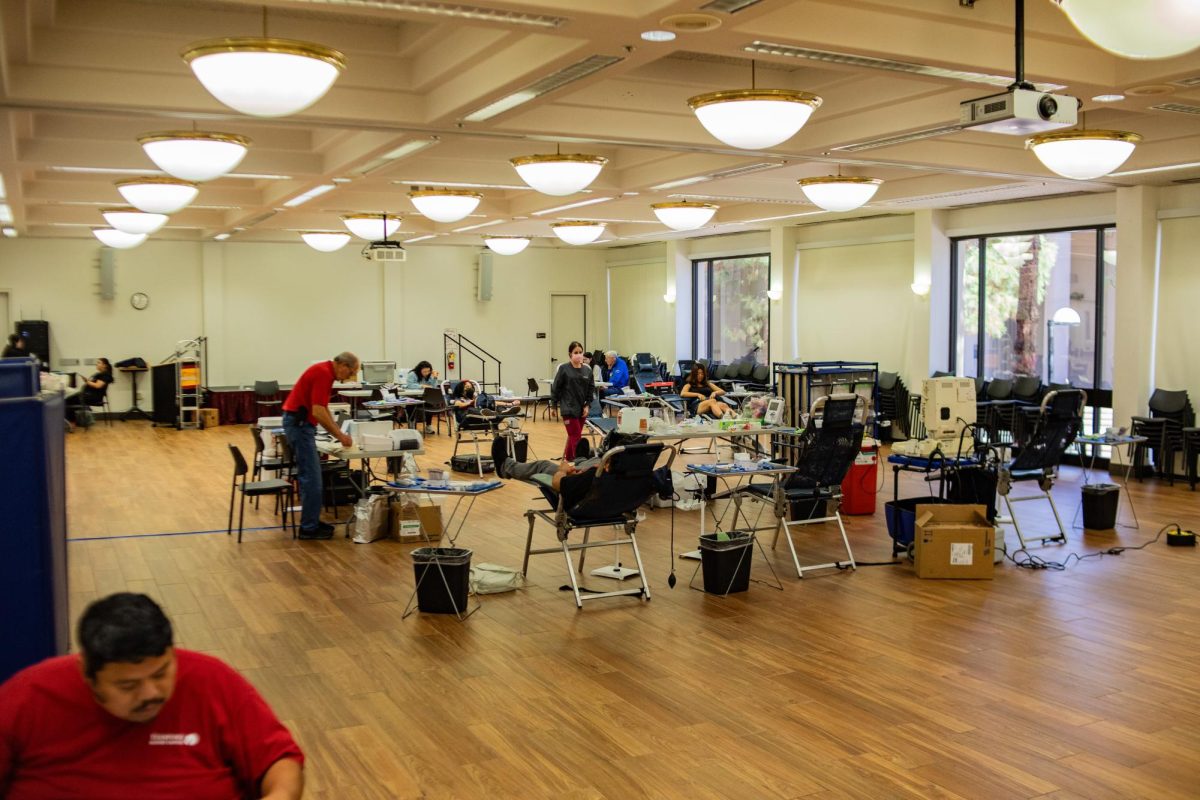DASB cuts bike program, ICC funding, increases HEFAS, special allocations funding
March 10, 2020
Over $6,500 was cut from DASB Senate’s finance committee’s proposed budget, but it did not result in many redistributions for programs in Fund 41 that had been cut considerably in the proposed budget.
Halina Liang, DASB finance chair, said there was a 17% decrease from the current budget to the 2021 proposed budget.
“With those numbers stated, I would just like to remind senators, and the public that DASB is, again, in a very difficult position,” said Liang. “No program was specifically targeted.”
DASB Senate voted to cut over $6,400 from the DASB bike program which has unutilized funds from the current fiscal year.
“I think 15 hours per week is a lot more realistic and that’s why I brought that forward,” said Casey Cosgrove, DASB senator and previous bike coordinator for the DASB bike program.
$5,600 was cut from student payroll and another $700 was cut from supplies and technical services which Cosgrove said was in large part due to purchases that had been made the previous fiscal year that were still in storage.
HEFAS gained $2,100 for student payroll above the finance committee’s recommendation of $21,600, making their total $23,700.
Juan Marquez, chair of legislative affairs and who asked DASB to consider the program, said that he was satisfied with the amount allocated to HEFAS.
“I’m happy that the money was allocated,” he said. “I really appreciate the senate being a cooperative as it was, because it wasn’t in their budget until now.
HEFAS was one of the highest ranked programs according to the finance committee’s new budget rubric system, which Liang said was sent to all programs on Oct. 7.
The rubric, which has 10 different criteria including “reflection,” “uniqueness” and “promotion,” is available on the DASB senate’s website.
Requesting $1,350, the Inter Club Council was allocated only $850 for their awards and events and the equipment rental funds.
Amy Hue, ICC chairperson, who was aware of the total ICC cuts of $3,000, said she wishes the senate was more knowledgeable on the process of the program.
“I get where they are coming from, because we did receive a big slash in our budget for the next year because of declining enrollment,” she said. “However, clubs are a very vital part to De Anza.”
The Computer Donation Program gained $350 for its student payroll from its original recommendation of zero.
Another large beneficiary of the redistribution was special allocations, which received $2,000 of the funds.
Special allocation funds are able to be used for any programs within its overarching fund and can redistributed to programs within it on a first-come first-serve basis, after applying for their use for a specific purpose.
DASB president Shelly Michael said that the amount allocated for the special allocation was appropriate.
“This is essential because we are going through budget cuts so a lot of programs have been cut significantly,” she said. “This is the way we can mitigate that so if a program really needs essential funding, they can come and request that.”
Before the DASB Senate voted on special allocations, DASB senator Amy Kim had requested $2,000 to be pulled to fund currently unfunded programs like the Jean Miller Research Room and the Outreach Program, which were cut completely in the Finance Committee’s proposed budget.
The motion to cut funding failed.
“I think by not funding these programs it doesn’t mean that we don’t support them, those are great programs,” said Shelly Michael. “It just means that the school should be supporting them.”
Several senators did not agree with having the school fund what Michael said to be important programs.
“Based on previous experience with our faculty and the decisions that we have seen them make, I don’t think that it is a statement in the interest of the students who will be cut those funds,” said Kim.
DASB Student Representation Fee Fund 46, which uses funds for leadership conferences and training, made a large cut to the California Campus Camp after it was determined that the funds were not supporting as many De Anza students as originally intended.
Michael said that she was happy with the results of the budget revisions.
“I feel like today DASB really worked in tandem to comprise on a lot of really critical programs that we have here on campus, so I’m very very satisfied,” she said. “I think a lot of programs got ample funding and I’m very excited seeing what the programs are going to do with their funding next year.”



